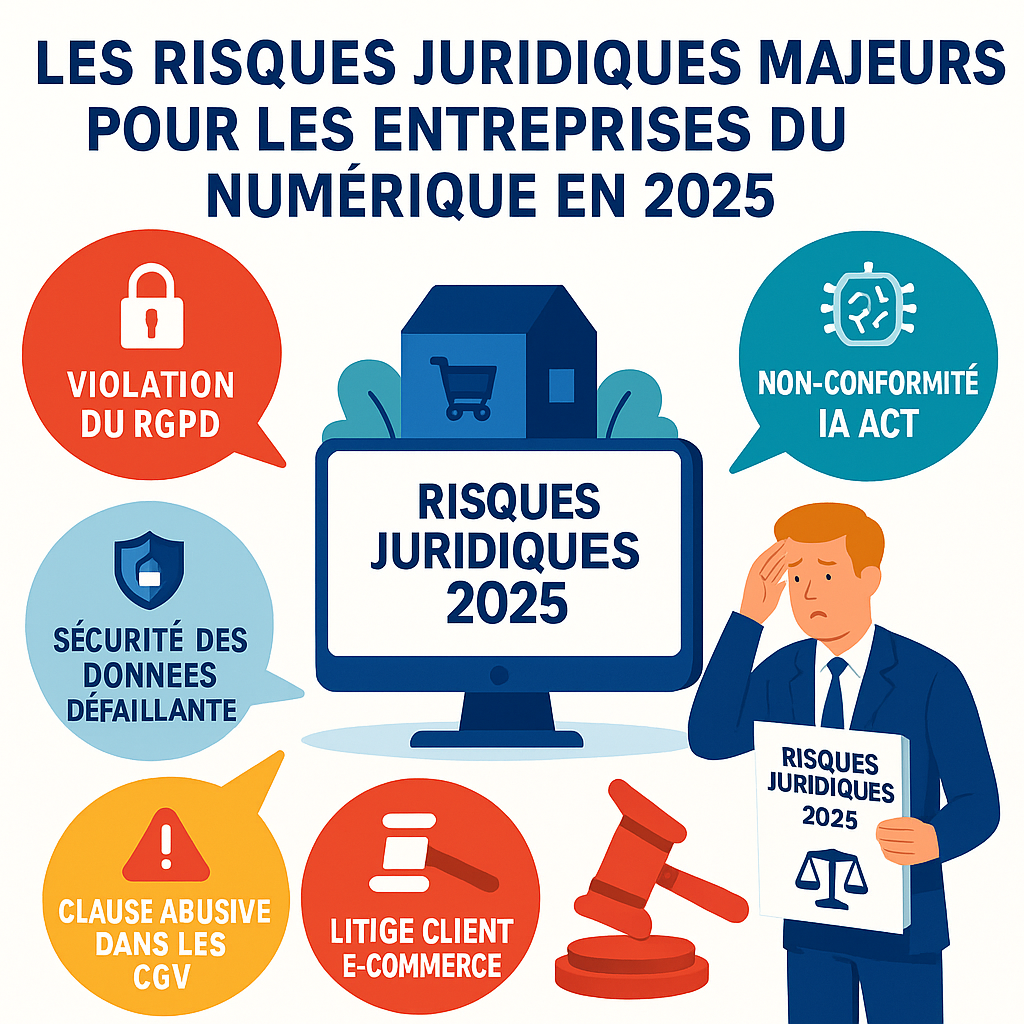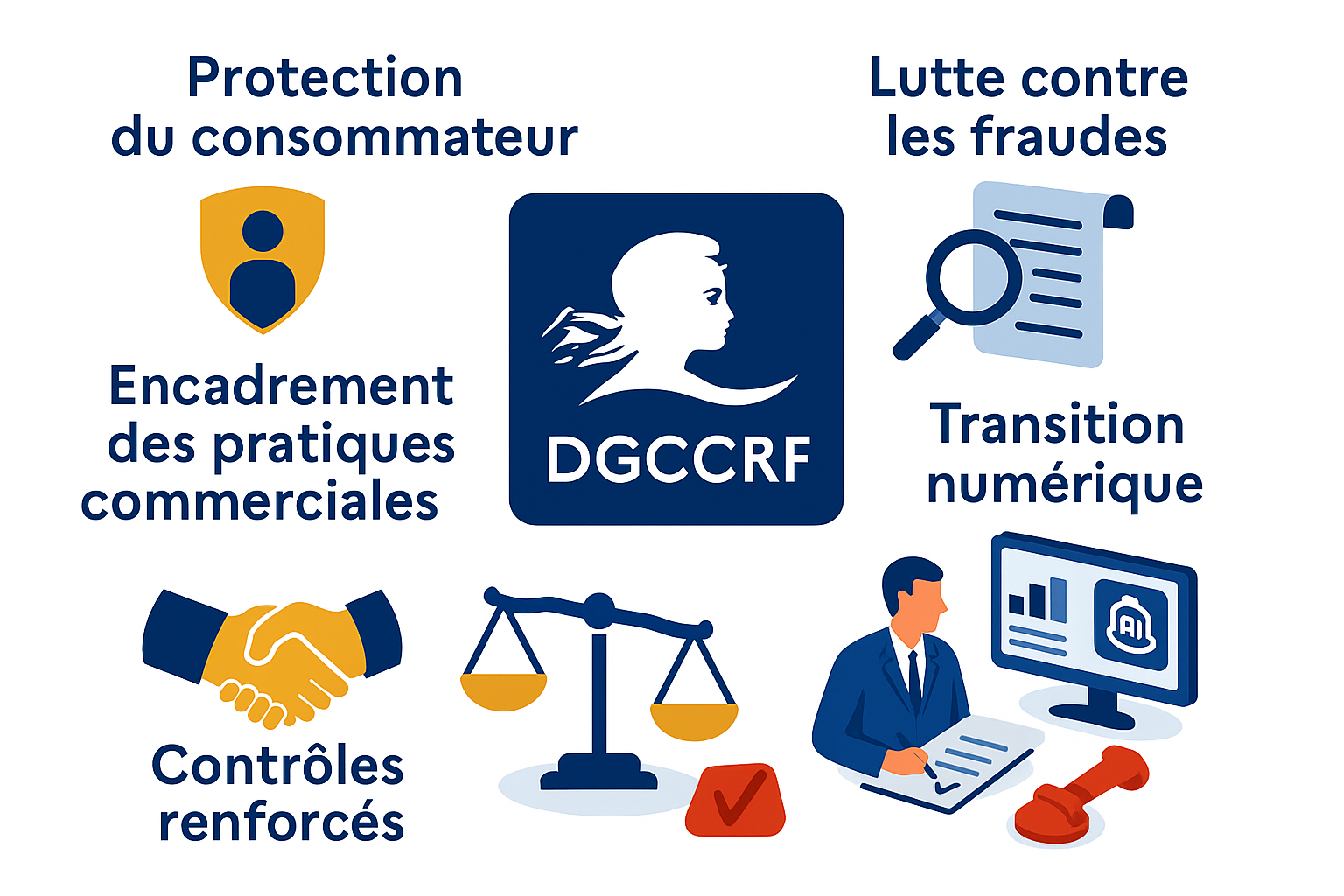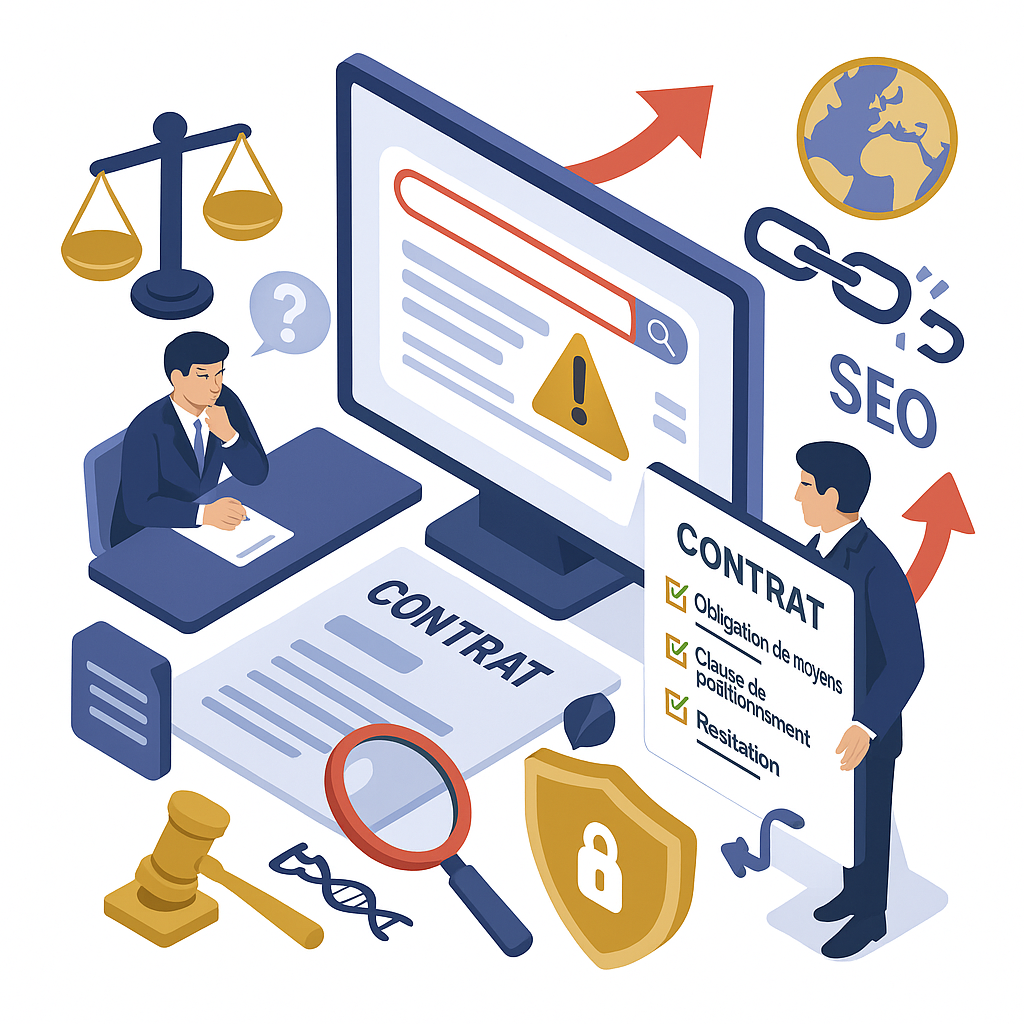As the pace of digital transformation accelerates, legal risks for businesses are evolving at breakneck speed.
The regulatory landscape is becoming increasingly complex, penalties are getting tougher, and the economic stakes involved in complying with standards have never been higher.
In 2025, companies in the digital sector face unprecedented challenges that call for heightened vigilance and solid legal expertise.
If you need a digital lawyer, contact me!
RGPD compliance: an ongoing challenge
The protection of personal data remains at the heart of companies' legal concerns. The General Data Protection Regulation (GDPR) continues to evolve, with stricter interpretations and tougher requirements. Supervisory authorities such as the CNIL are stepping up their checks and no longer hesitate to impose considerable financial penalties.
Companies must now prove their compliance proactively and on an ongoing basis. A simple privacy policy is no longer enough: the approach must be global, involving all company departments and processes. Users' explicit consent must be collected transparently, and processing records kept up to date with absolute rigor.
The emergence of new technologies such as generative artificial intelligence also raises unprecedented data protection issues. Companies developing or using these tools need to anticipate the specific legal risks they entail.
Intellectual property in the digital age
Intellectual property is a strategic asset for digital companies. Software, databases, user interfaces and other intangible creations often represent the bulk of their value. Yet the protection of these assets is increasingly threatened by sophisticated counterfeiting practices.
In 2025, companies are facing an increasing number of copyright disputes in the digital world. The boundaries between inspiration and copying are becoming blurred, particularly in the field of interface design and software functionality. Unfair competition is also expressed through practices such as data scraping and the imitation of online services.
Companies that fail to adequately protect their innovations risk not only direct financial losses, but also the erosion of their competitive edge. A digital lawyer can help you put in place a robust strategy to protect your intangible assets, including the registration of trademarks, patents and the contractual securing of your trade secrets.
The legal risks of cybersecurity
Cybersecurity is no longer just a technical issue, but also a major legal one. Cyber-attacks are multiplying and becoming more sophisticated, exposing companies to a double penalty: operational damage and legal liability.
When a data breach occurs, the company can be held liable if it has not implemented adequate security measures. This liability now extends to damages suffered by third parties whose data has been compromised. Obligations to notify the authorities and data subjects add a further layer of complexity to the management of such incidents.
The regulatory framework has also become tougher, with the entry into force of sector-specific regulations such as the DORA regulation for the financial sector and the NIS 2 directive for critical infrastructures. These texts impose specific requirements in terms of digital resilience, and provide for severe penalties in the event of non-compliance.
The vulnerability of digital contracts
Digital contracts form the legal basis for relationships between players in the digital economy. However, many of these contracts contain loopholes that only become apparent in crisis situations.
General terms and conditions of use (GTCU) and contracts for the provision of IT services are particularly exposed to the risk of partial or total invalidation. Liability limitation clauses, essential for service providers, are subject to increasingly strict judicial control. The legal status of innovative digital services often remains uncertain, creating a prejudicial legal vagueness.
The development of blockchain technologies and smart contracts also raises unprecedented questions in terms of legal validity and enforcement. These promising innovations are accompanied by legal uncertainties that may hinder their adoption.
Editorial responsibility and content hosting
The editorial liability of digital platforms has become a legal minefield. The balance between the status ofhost andpublisher is becoming increasingly complex, with major consequences for the applicable liability regime.
The European Digital Services Act has redefined the obligations of technical intermediaries with regard to illegal content. Platforms must now implement proactive detection and removal mechanisms, while respecting users' freedom of expression. This difficult equation exposes companies to significant legal risks, whether they act too little or too much.
Content moderation has become a strategic issue, requiring robust and transparent procedures. Companies that neglect this aspect expose themselves not only to administrative sanctions, but also to civil or criminal liability claims.
Navigating safe waters: legal expertise as a compass
Faced with these multiple and complex challenges, digital companies can no longer afford to improvise their legal strategy. Regulatory compliance is not simply a matter of respecting the law, but a genuine competitive advantage in an ecosystem where trust has become a cardinal value.
A proactive approach to legal risks not only helps avoid costly sanctions, but also secures the development of new products and services. Integrating the legal dimension right from the design phase (legal by design) is now a must for innovative companies.
Faced with these growing risks, consulting a digital lawyer has become essential for businesses. Maitre Romain Mirabile offers a comprehensive expertise to support you in all these legal aspects and secure your digital business.




